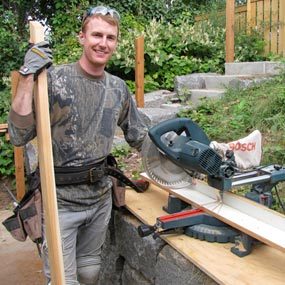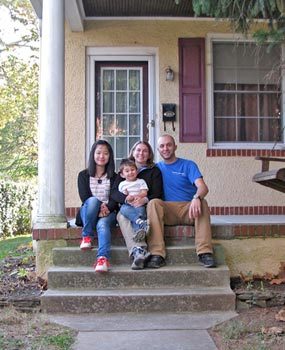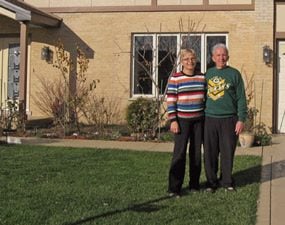New Homeowner Tips
Getting Started on a New House
Buying a home is a huge step. Learning to maintain and improve it is a long series of baby steps, sometimes painful and sometimes rewarding. To help get new homeowners off on the right foot, we asked our Field Editors, some of the sharpest DIY veterans around, to pass along their best tips for choosing, maintaining, and improving a home.
Scout the Neighborhood
Tackle One Project at a Time
Make a Homeowner’s Journal
Buy a ring binder and keep insurance papers, repair receipts, and all other paperwork pertaining to the house in it. Storing all your house information in one handy place makes life easier for the homeowner and can be a sales “plus” when selling the house later.
Debora Emmert
Get to Know Your House Before Renovating
Live in your home for 12 to 18 months before undertaking any major renovations such as additions or knocking down walls. What you initially think you want may change after you’ve lived there for a while.
Fran Carpentier
Check the Furnace Filter
Don’t Be Afraid to DIY
Ninety percent of a DIY project is having the guts to try. Worst case — you mess up and then bring in the professional. Best case — you save money, learn something new, and feel a great sense of accomplishment.
Fran Skwira
Finish Projects . . . Now
Don’t learn to live with incomplete projects. If you do, the last couple of pieces of trim can linger for years!
Jack Bauer
Budget for Trouble
Verify Everything
The TOP Piece of Advice
We heard this tip over and over, along with many horror stories from new homeowners who didn’t follow it:
Get a licensed home inspection!
- Don’t let your real estate agent choose the inspector. Hire someone who works for you without any conflict of interest.</li.
- Inspect the inspector before you hire. Ask to see a sample home inspection report. Comprehensive reports run 20 to 50 pages and include color photos showing defects or concerns. Also ask about the length of the inspection. A thorough inspection takes a minimum of three to four hours.
- Walk through with the inspector. You’ll learn a lot about your house.
- You may have to pay more for a certified inspector, but in the long run it’s worth it. Certified inspectors use sophisticated measuring and detection equipment that can find potential defects that can’t be easily seen. Spend $1,000 now rather than $10,000 in surprise repairs later. (For a list of inspectors certified by the American Society of Home Inspectors, visit ashi.org.)
Get a Home Warranty
Check Crime Stats
Ask Neighbors About Pros They Trust
If you’re looking for plumbers, electricians or other pros, ask your neighbors. You tend to get decent advice if you get it from people who live near you.
Bob Bessette








No comments